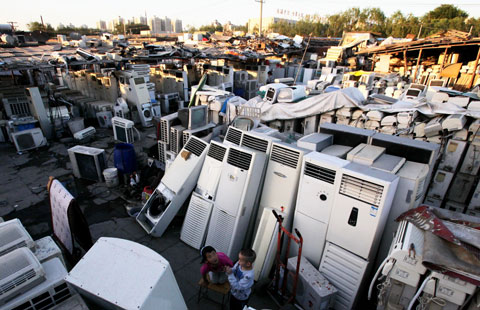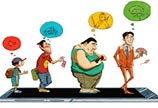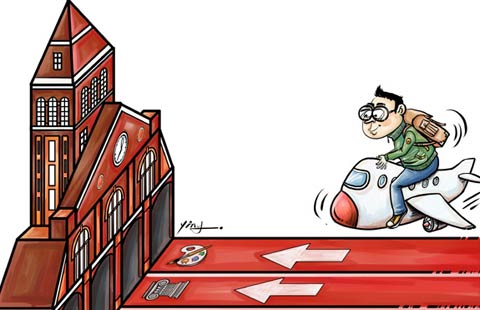Sporting life means result is always a healthy outcome
By Lei Lei (China Daily) Updated: 2012-03-14 07:49People's fitness now takes pole position ahead of hunt for Olympic glory, reports Lei Lei in Beijing.
At the 2008 Beijing Games, China showed what it is capable of on the field: Its athletes topped the final rankings with 51 gold medals, ahead of the United States and Russia.
Yet, as the world prepares for the London Olympics, which start in July, the country's leaders are instead looking to highlight goals off the field.
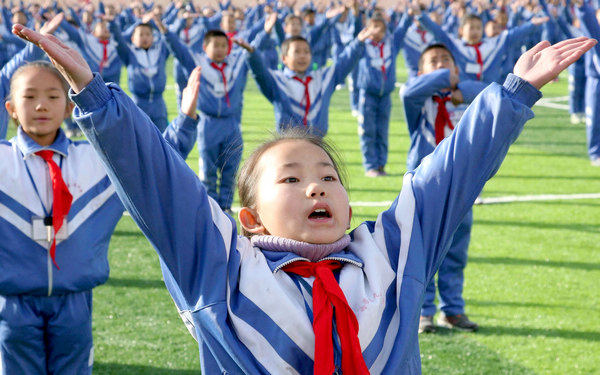 |
|
Students at Hami No 9 Middle School in the Xinjiang Uygur autonomous region take part in morning exercises, which are held daily. Primary and middle schools across the country are being encouraged to increase the amount of physical education they offer, while one CPPCC member even proposed that principals should be penalized if their students do not get enough exercise. [Cai Zengle / for China Daily] |
Rather than racking up medals, the health and fitness of the people are now the priority, as China aims to become a global sports powerhouse.
In his government work report to the National People's Congress on March 5, Premier Wen Jiabao said the country had already put a "great effort" into building public facilities and pledged that it will continue to improve working and living conditions in rural areas by building up its sports infrastructure.
He also promised "extensive fitness activities" nationwide to promote healthy living and develop the sports industry.
"The speech (by Wen) was a milestone for sports in China," said Wang Jun, a retired deputy director of the State General Administration of Sport and a member of the Chinese People's Political Consultative Conference. "It shows the government recognizes the multifunction of sport, which is a great relief."
"Sport is playing an important role in the development of society," he said. "I feel very proud that its position (in people's minds) is becoming higher."
Chinese sports stars have already made a splash in the global sports scene, such as Yao Ming, the retired NBA All-Star center; champion hurdler Liu Xiang; and Li Na, who won last year's French Open tennis championship.
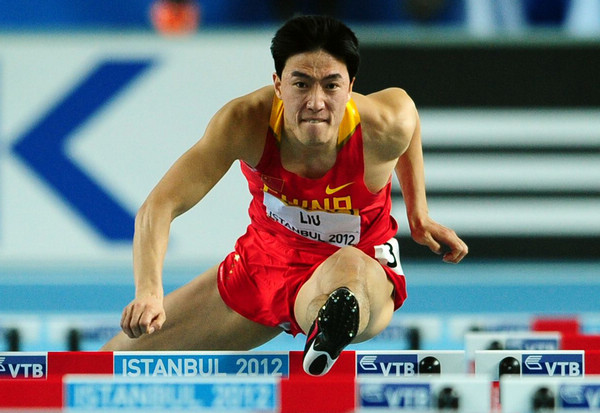 |
|
Liu Xiang won a silver medal during the men's 60m hurdles final at the 2012 IAAF World Indoor Athletics Championships in Istanbul. [Photo/Agencies] |
However, being a sports powerhouse it not just about success and celebrity. To become one, a country needs to have at least four characteristics, according to Jiang Xiaoyu, deputy director of the CPPCC's Education, Science, Culture, Health and Sports Committee.
"Its people need to frequently take part in sports activities and their physical condition should be good," he said. "It should gain good results at international competitions and have outstanding sports stars. Its sports market should also be prosperous.
"Last," he added, "it should have a powerful sports culture, which means there should be enough people working in the international sports federations."
Cui Dalin agreed and said being a sports powerhouse is more than just winning medals, it requires the population to have a good overall sports awareness and participation.
"The percentage of people who play sports frequently should be high," said Cui, another former deputy director of the State sports administration. "The more people we have playing sports, the more talent we can find for competitions. The two are complementary."
|
||||
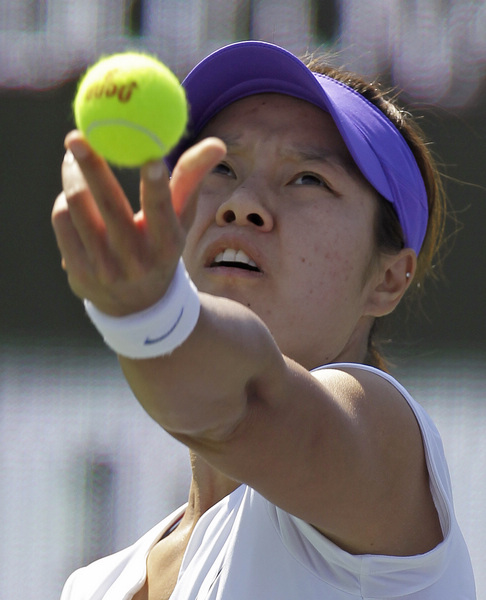 |
|
2011 French Open champion Li Na serves during a match against compatriot Zheng Jie on Sunday in California. [Photo/Agencies] |
- Seven villagers murdered in N China
- China steps up tobacco control efforts
- Five jailed for separatism in Xinjiang
- Letter asks for leniency in poisoning case
- Antibiotics in surface water pose 'indirect health risk'
- Tianjin airport opens up transit link to Beijing
- High levels of antibiotics in China's major rivers
- China to dig tunnel for Asian rail system
- Bering strait line to US possible, experts say
- China: Stop oil rig harassment



